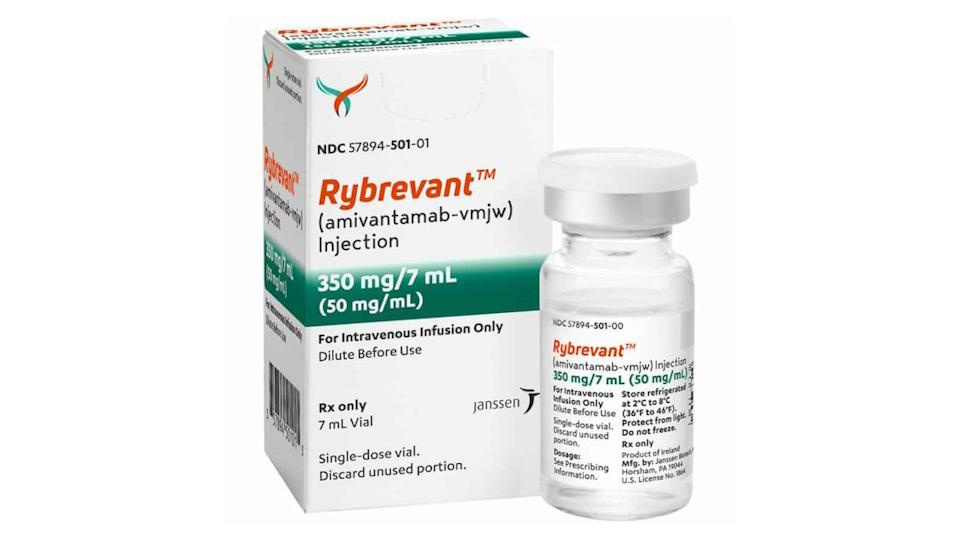ESMO: J&J cues up phase 3 for Rybrevant in colorectal cancer

Johnson & Johnson is planning a phase 3 programme for Rybrevant in colorectal cancer as a follow-up to its first indication in non-small cell lung cancer (NSCLC), after reporting encouraging results at ESMO.
The new data from the phase 1b/2 OrigAMI-1 study showed that Rybrevant (amivantamab) plus chemotherapy achieved an objective response rate (ORR) of 49% in patients with RAS/BRAF wild-type metastatic colorectal cancer (mCRC) – who had not previously received anti-EGFR therapy – when used as either first- or second-line therapy.
The median duration of response was 7.4 months with the regimen, while median progression-free survival (PFS) was 7.5 months, and the disease control rate – including stabilised cancers – was 88%. Rybrevant also achieved an ORR of 53% in patients whose disease had spread to the liver, which occurs commonly with this type of cancer.
Moreover, 21% of patients treated with the regimen became eligible for potentially curative surgery for the cancer, according to Filippo Pietrantonio of Fondazione IRCCS Istituto Nazionale dei Tumori in Milan, Italy, who presented the results at ESMO and said the data shows "the promise of Rybrevant in patients in this setting."
The go-to treatment for this type of mCRC at the moment is Eli Lilly's anti-EGFR-antibody Erbitux (cetuximab) plus chemotherapy, and J&J is planning to run a pair of phase 3 trials of Rybrevant in the first- and second-line settings to see how its drug compares.
"Confirmation that Rybrevant has activity beyond lung cancer, given its unique multi-targeted approach in inhibiting EGFR and MET, is a potentially important step forward for patients with EGFR inhibitor-naïve metastatic colorectal cancer," commented Kiran Patel, head of clinical development, solid tumours, at J&J.
"Colorectal cancer is the third most common cancer globally, representing about 10% of all cancer cases and the second leading cause of cancer-related deaths," he added.
Rybrevant has been approved by the FDA for NSCLC patients with EGFR exon 20 mutations since 2021 and had its indications extended to include combination therapy with chemo in that patient group earlier this year.
Last month, however, it also got the go-ahead from the FDA for first-line use in combination with J&J's third-generation EGFR tyrosine kinase inhibitor Lazcluze (lazertinib) for a much wider patient population, setting up a challenge to AstraZeneca's market-leading EGFR inhibitor Tagrisso (osimertinib) in lung cancer.
J&J has big peak sales expectations for Rybrevant – $5 billion a year according to recent comments made by senior management – and the new NSCLC indication is seen as being a key stepping stone on the way. Colorectal cancer could be another if the phase 3 trials go according to the company's plan.












